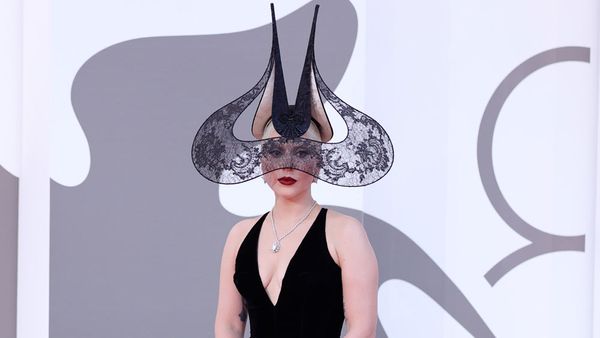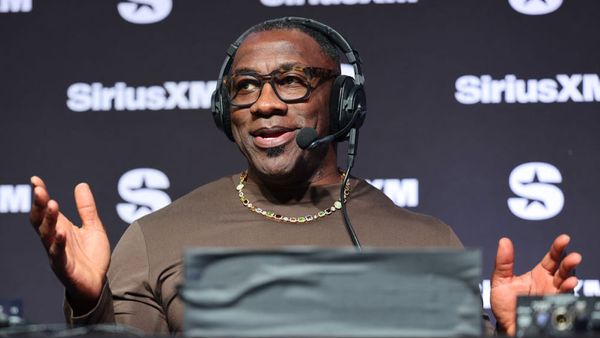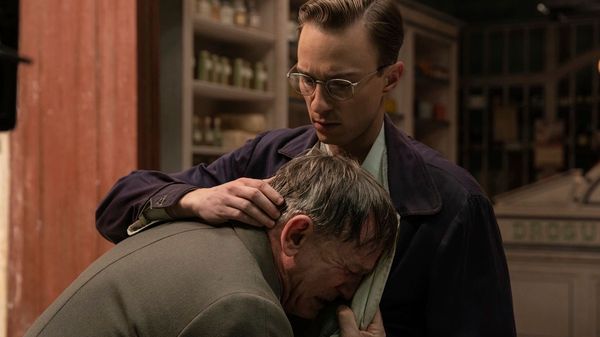Feb 13
Queering Cinema: Did the Academy Shade Faye Dunaway with Clips from 'Mommie Dearest' on her Birthday?
Robert Nesti READ TIME: 10 MIN.
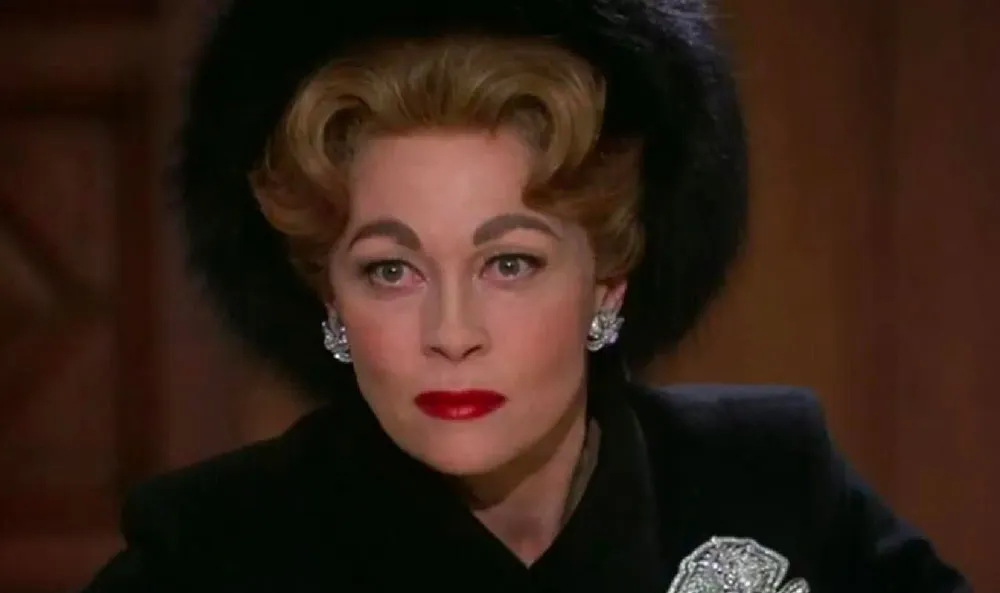
The Academy's 90-second clip plays like a trailer to the yet-to-be-made "What Ever Happened to Faye Dunaway?," and includes virtually every one of the film's classic lines. ("No wire hangers!"; "Tina. Bring me the axe!"; and, best of all, "Don't fuck with me, fellas. This ain't my first time at the rodeo!"). Always in close-up, Dunaway rages with an "Excorcist"-like zeal, giving letter-perfect line readings of the monster Christina Crawford wrote about in the book from which the film was adapted. That this out-of-control Crawford was at odds with the always-in-control film personas for which Joan was famous made the book a sensational read when it was published in 1977, revealing the ugly side of stardom in its harrowing description of Crawford's parenting skills. But, as is often pointed out, Christina had an axe to grind: Crawford left her and brother Christopher (also adopted) out of the will. It is that Joan Crawford whom Dunaway brings to life so vividly in the film.
And it was at odds with Crawford's cultivated film persona, where she was usually hard, often duplicitous, sometimes victimized, but always cool, even cold as ice. This control freak Joan never seemed capable of the emotions the biopic Joan bumps and grinds in. What the arid, creepy, and hilariously over-the-top "Mommie Dearest" offers is a collection of anecdotal horror stories of Joan's mothering habits strung together during the second half of her tempestuous career from the 1940s until her death in 1977. In reviewing the film, critic Pauline Kael wrote that Dunaway gave "a startling, ferocious performance," adding, "Dunaway brings off these camp horror scenes – howling 'No wire hangers!' and weeping while inflecting 'Tina, bring me the axe' with the beyond-the-crypt chest tones of a basso profundo – but she also invests the part with so much power and suffering that these scenes transcend camp."
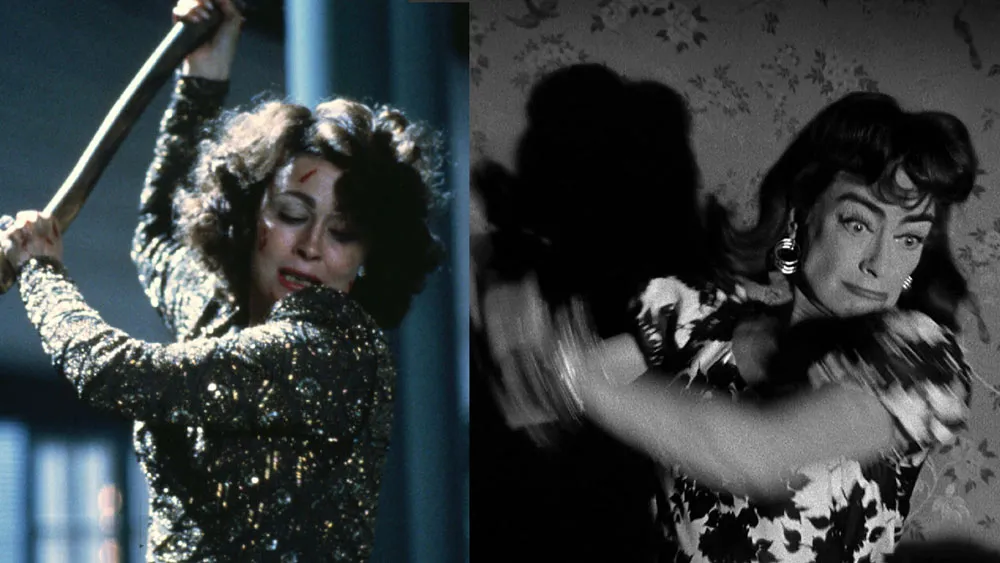
Was that the sentiment behind the Academy posting? Most readers on the Academy's IG page didn't see it as throwing shade. They were simply pleased the Academy chose to honor a performance that it snubbed the year it was released. "So epic that the academy post this on her birthday... best present ever 😂," wrote yosoycrawford, And edupacbr added: "She didn't receive a nomination for this role, but the line 'No more wire hangers ever!' will be forever in our hearts! 🥰"
But others pointed out that perhaps Dunaway wouldn't be too pleased with the clip.
_palinkoooo_ predicted: "I have feeling that whoever uploaded this will receive a very unpleasant voicemail😬"
AS IG user adamtots points out: "This movie ruined her career and she haaaaaaaaaates the movie so much lol"
So while the Academy flirts with the wrath of Faye, could a cosmic Joan have been taking revenge on Dunaway for starring in such a (um) hatchet job as "Mommie Dearest?" (Note: as ferociously as Dunaway wields the axe, she can't compare to Joan decapitating a cheating husband in "Straight Jacket.") Dunaway acknowledged that Crawford admired her in her 1995 book "Waiting for Gatsby" with a quote from the actress: "Of all the actresses, to me, only Faye Dunaway has the talent and the class and the courage it takes to make a real star." Dunaway was also one of the few 1970s stars that evoked the kind of old Hollywood glamour Crawford reveled in. But did Crawford reach out from beyond the grave to show her displeasure with Dunaway? If any actress could pull off such a supernatural feat, it would be the fiercely determined Crawford.
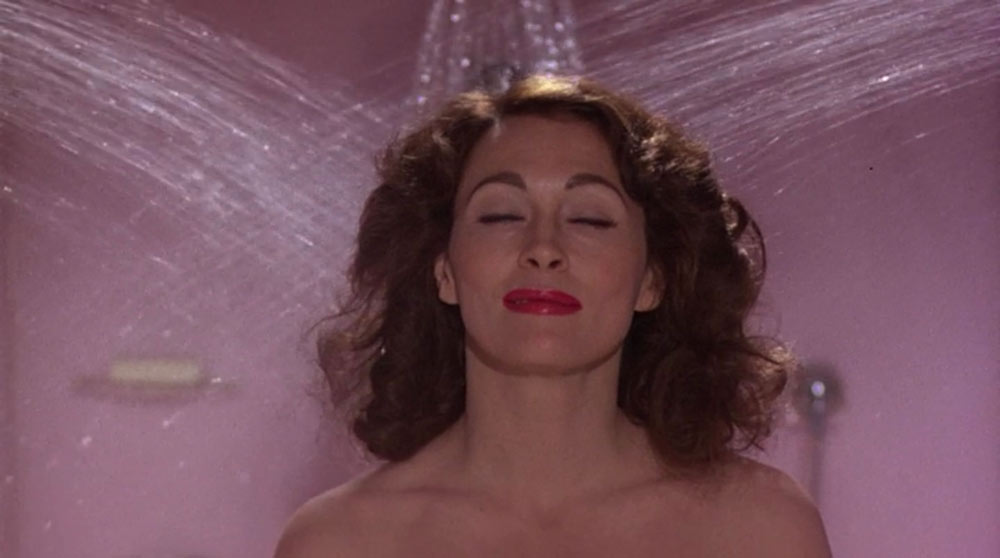
Source: IMDb
While filming, Dunaway acknowledged a sense that Crawford was close at hand. "At night I would go home... and feel Crawford in the room with me, this tragic, haunted soul just hanging around," she wrote in her 1995 autobiography "Waiting for Gatsby," adding that she felt "a chilly presence, a coming-in-and-sitting-on-the-window-ledge sort of thing." At the time, the media reported that Dunaway felt she was being haunted by Crawford during the difficult shoot. While shooting the "no wire hangers" scene, Dunaway mysteriously lost her voice. In a report on the film's troubles, Vanity Fair wrote of other strange occurrences, including "Crawford's gowns going missing and an entire reel of film that came out mysteriously blank."
Even Dunaway's attitude towards Crawford changed, and she became more sympathetic towards the star. "She gave everything to this little girl, wonderful Christmases, wonderful parties, and judging by my research, a great deal of love," wrote Dunaway about Crawford. "And then to be so rebuffed and so coolly treated by this little Scandinavian girl. It was understandable to me that Joan did have areas that could erupt into anger and fury."
Of course, it is ridic to suggest that Crawford somehow sabotaged the filming of "Mommie Dearest" and, in turn, ruin Faye Dunaway's career. Given her reputation, Dunaway didn't need any help with that. Nor was her career ruined – she has never stopped working, mostly on television and independent films; but she has yet to have the career resurgence experienced by actresses later in their career, such as Jessica Lange, who successfully played Crawford on the first season of "Feud." Wouldn't it be great if this cosmic feud played out on a season of "American Horror Story," with Lange reprising her Crawford, this time reaching from beyond the grave to terrorize Emma Stone as Dunaway?
It is also peculiar that the Academy would choose to honor Dunaway with this campy clip from a film she has been said to loathe. It is as if she can never escape the shadow of Joan Crawford even to this day, something she acknowledged in "Looking for Gatsby."
"But after 'Mommie Dearest,' my own personality and the memory of all my other roles got lost along the way in the mind of the public and in the mind of many in Hollywood," she wrote nearly thirty years ago. "It was a performance. That's all that it was. For better or worse, the roles we play become a part of our persona, and the actress and the woman are identified with that persona. People thought of me as being like her. And that was the unfortunate reality for me about this project."
Robert Nesti can be reached at [email protected].


